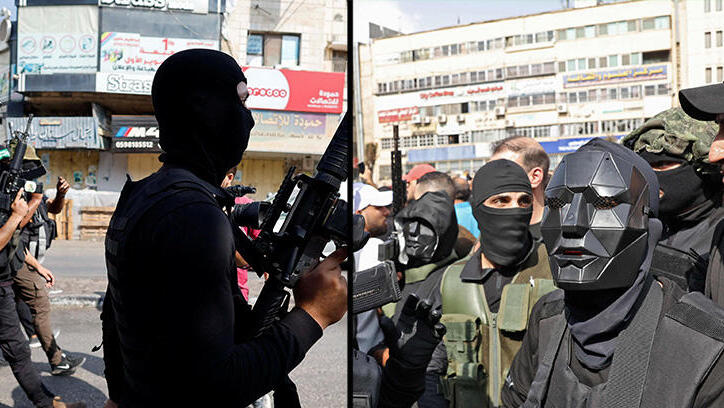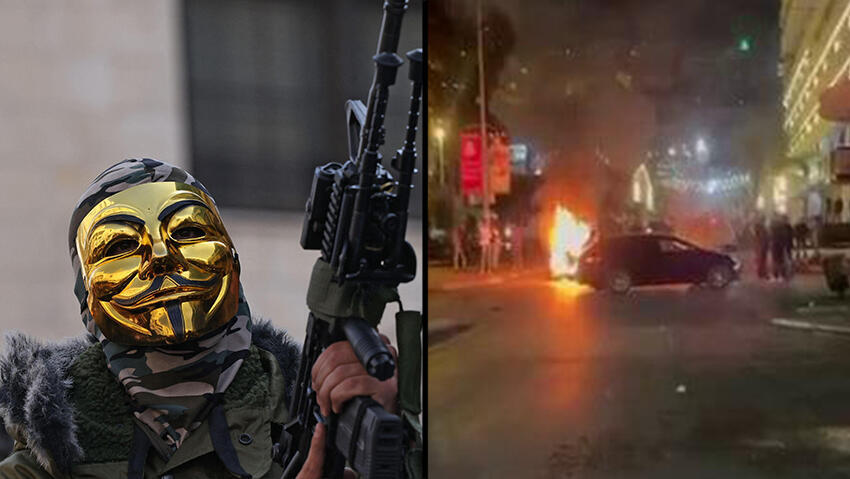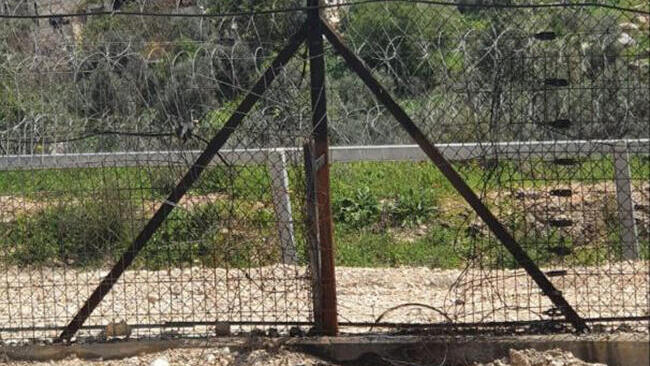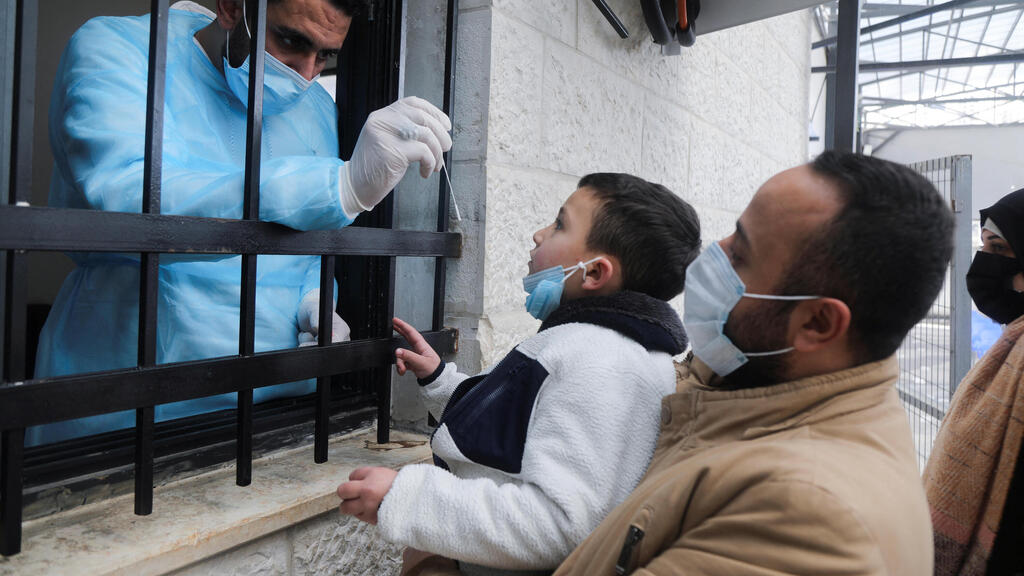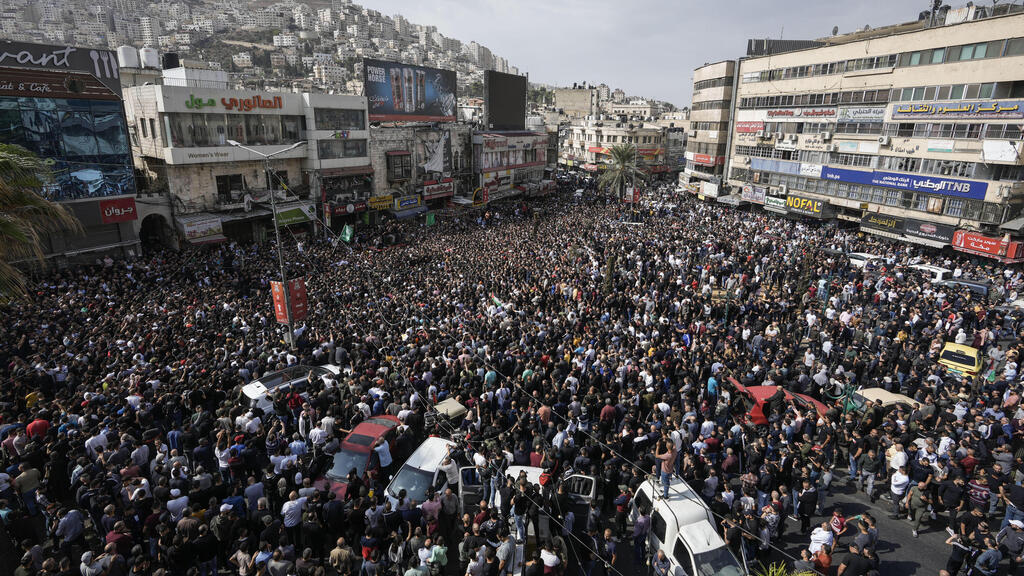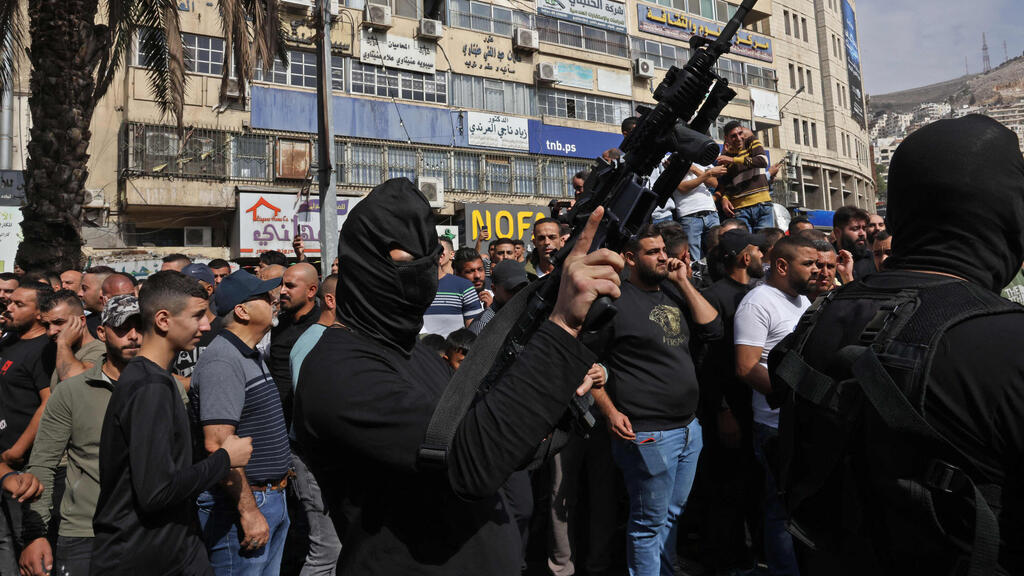Getting your Trinity Audio player ready...
Israeli security forces have been dealing with a wave of terror and violence in the past six months, originating mainly from the Palestinian cities of Jenin and Nablus in the West Bank.
Like in the past six months, forces again were operating in Nablus late Tuesday, arresting Eyad al-Nablusi, brother of terrorist Ibrahim al-Nablousi who was killed in September during clashes with the IDF. The arrest was carried out without riots erupting, unlike what happened during a similar arrest operation a day earlier.
On Monday night a senior member of newly emerged Palestinian terror group Lion’s Den was killed by security forces during a "regular" terror raid in Nablus.
Security officials say they plan to continue with nightly arrest raids until the terror wave that began back in March is thwarted once and for all.
“This terror wave didn’t appear out of nowhere,” a security official explains. “Jenin went through a decade of economic growth, and up until 2019 was a model to Palestinian cities across the West Bank, becoming an economic powerhouse."
This economic growth was the reason why Israeli security forces took the foot off the gas when it came to monitoring the area. “The IDF thought it would operate there without confrontations, and decided to downscale the forces allocated for Jenin. There was a time where only one IDF battalion was stationed there, because you didn’t need anymore.”
The official explained that decision led to Palestinians without work permit freely entering Israel. “In the beginning of 2019, Palestinians who had no entry permit were still scared of passing through the fence, from Jenin to Israel, due to the fear of facing IDF soldiers. When the number of forces was reduced, that was no longer the concern,” he says.
"The way Jenin handled itself was comfortable to Israel and to the Palestinians - Israel not in the picture, the Palestinians can cross the border freely, and the Palestinian Authority gets revenue from Jenin’s economic boom."
But, as a result of unaccounted for visits through the unmonitored border crossing, Jenin began to get filled with weapons and military equipment.”
The official said that the next step in Jenin’s decline was the COVID pandemic. “In March 2020, the border crossing was closed due to COVID. You had to do it since it was a public health issue. We also patched up the holes in the fence, and brought more security forces to patrol the area. The Palestinian Authority also assisted with arresting Palestinians with no permit entering Israel,” he says.
“A year in a half is a long time in economic terms,” he says.
According to estimations, Jenin earned annually NIS 2-3 billion through trade and other business ventures, but when COVID hit, the city was on the verge of economic collapse. This made it easier for Hamas and other radical elements to control it, manipulating Palestinians who desperately needed money.
"You already have weapons there, but no money, and this is where the terrorist organizations come in,” says the official.
“After Operation Protective Edge in May 2021, Hamas made promises to Israel it’s afraid to break, but it also wants terror in the West Bank to continue, so it turned to the Islamic Jihad.
"Hamas told them: 'You control Jenin, I’ll finance any terror attacks you carry out, as long as there are Israeli casualties.' So, the number of attacks originating from Jenin started rising. Every operation carried out by security forces there usually involves armed confrontations, while Hamas watches from the sidelines.”
In Nablus, Jenin’s southern neighbor, things are mostly the same - except for a few differences. The Palestinian Authority and the IDF have more control over the city, unlike n Jenin, and it has more "moderate" militant groups controlling it.
The operation carried out Tuesday, during which senior members of the Lion’s Den were killed, increased tensions in the city, which is still a terror hotbed.
“The terrorists in Nablus are making people and tourist afraid to go there, thus hurting the city’s economy,” the official says. “There’s a hotel in Nablus which used to be fully occupied, but lately only 5% of the rooms are booked.
"During behind-closed-doors talks with Palestinian businessmen, we keep hearing the dismay over the Lion’s Den, but no one criticizes them publicly out of fear they would harm them or their businesses. The city became a captive to a group numbering less than 10% of it.”
Another security official said the Palestinian Authority should’ve handled Lion’s Den militants to maintain control of Nablus. “When the PA decides to deal with them, things will likely get better. We saw it before, when a Palestinian mother and her children were captured by members of the group, the PA worked to save them.”
Since the tensions in the city have been rising, the Israeli security forces imposed a partial closure on the city, making it very difficult for those living there to enter Israel.
"We’re always maintaining the balance between the general population and terrorists. We don’t want to impose a collective punishment, but we also want to make clear we intend to fight this terrorist group.”
The official explained that Nablus’ closure had a major impact on the city. “The city is reliant on tourists, mostly of Israeli Arabs and other Palestinians. The city’s Kasbah, or old city, is an important part of tourism.”
He adds: “An Arab Israeli staying in Nablus goes to experience the Kasbah. With the closure, people are thinking twice if they should to there.”


